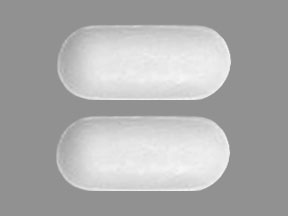
Oyster Shell Calcium Coupons & Savings Card – Discount Prices from $4.85
This medication is used to prevent or treat low blood calcium levels in people who do not get enough calcium from their diets. It may be used to treat conditions caused by low calcium levels such as bone loss (osteoporosis), weak bones (osteomalacia/rickets), decreased activity of the parathyroid gland (hypoparathyroidism), and a certain muscle disease (latent tetany). It may also be used in certain patients to make sure they are getting enough calcium (such as women who are pregnant, nursing, or postmenopausal, people taking certain medications such as phenytoin, phenobarbital, or prednisone). Calcium plays a very important role in the body. It is necessary for normal functioning of nerves, cells, muscle, and bone. If there is not enough calcium in the blood, then the body will take calcium from bones, thereby weakening bones. Having the right amount of calcium is important for building and keeping strong bones.
Our coupons are free to use. Before paying, show the pharmacist your Oyster Shell Calcium savings card to get your free discount. Use our filters below to edit the prescription box to match your needs. The Oyster Shell Calcium prices will update based on your prescription needs. Above our Oyster Shell Calcium coupons, you can change your location to see pharmacy prices and costs in other areas. We're here to help you buy Oyster Shell Calcium at the lowest price with our prescription discount card.
My prescription
Edit
500MG, Oyster Shell Calcium (60 Tablets)
Select pharmacy

Walgreens
$4.85
COUPON PRICE
Albertsons
$5.14
COUPON PRICEOyster Shell Calcium savings card
Show this card to your pharmacist
Walgreens
$4.85
BIN
ID
PCN
GRP
019876
LH918BF70C
CHIPPO
LHX
Powered by
This medication is used to prevent or treat low blood calcium levels in people who do not get enough calcium from their diets. It may be used to treat conditions caused by low calcium levels such as bone loss (osteoporosis), weak bones (osteomalacia/rickets), decreased activity of the parathyroid gland (hypoparathyroidism), and a certain muscle disease (latent tetany). It may also be used in certain patients to make sure they are getting enough calcium (such as women who are pregnant, nursing, or postmenopausal, people taking certain medications such as phenytoin, phenobarbital, or prednisone). Calcium plays a very important role in the body. It is necessary for normal functioning of nerves, cells, muscle, and bone. If there is not enough calcium in the blood, then the body will take calcium from bones, thereby weakening bones. Having the right amount of calcium is important for building and keeping strong bones.
Our coupons are free to use. Before paying, show the pharmacist your Oyster Shell Calcium savings card to get your free discount. Use our filters below to edit the prescription box to match your needs. The Oyster Shell Calcium prices will update based on your prescription needs. Above our Oyster Shell Calcium coupons, you can change your location to see pharmacy prices and costs in other areas. We're here to help you buy Oyster Shell Calcium at the lowest price with our prescription discount card.
